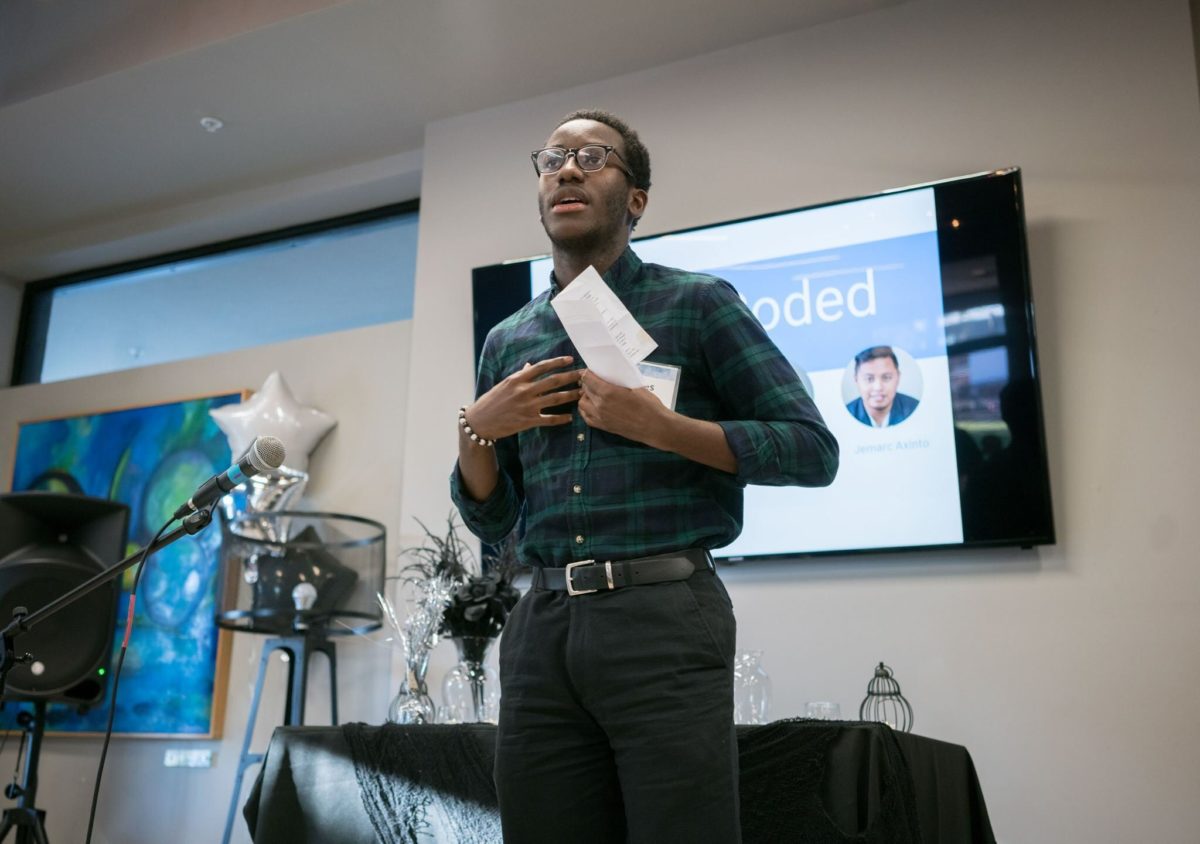Massaquoi is probably best known to Technical.ly readers as a cofounder of 360VR Technology, the startup he helped establish as part of his involvement with Horn Entrepreneurship.
In April 2020, he had left 360VR Technology after two years of co-leading the virtual reality startup. Out of school and in need of a job, he was happy to accept a role with Amazon, which was doing heavy pandemic hiring.
“I started working at Amazon as an associate account manager,” he said. “I did supply chain, customer service, consulting and marketing, depending on what the needs were for that day. Sometimes it was short-term stuff, like changing the title for a product on the website to bigger issues. … When the [Suez] canal crisis happened, I worked on getting the supply chain line fixed up. I did that for about four months, got promoted, got my own accounts, managing a little over $400 million in total.”
When he heard that Philadelphia-based Osage Venture Partners was looking for a full-time analyst, he applied without hesitation. He had pitched to Osage’s university arm previously and had worked with one of its senior analysts. Familiarity never hurts — he got the job.
“VC was something I always wanted to get into,” he said. “My dream is to someday create a fund, for a lot of different reasons. There’s a racial component. I think I’m like 1.1% [of the industry] as a Black male. Also, seeing how startups are funded after working in my own startup for a while [is a factor].”

Growing up in Dover, where he graduated from Caesar Rodney High School, Massaquoi didn’t have a lot of exposure to technology or startups. When he went to the University of Delaware, he hit the ground running as a freshman, and got involved with the Horn program.
“Which is what skyrocketed me to where I am now,” he said.
He spent the next couple of years getting involved with internships, programs and accelerators. These included the Vanguard EXPLORE program, internships with Newark-based platform TheraV and the Office of the Governor (where he worked on the entrepreneurial tax credit as a policy intern), stints teaching entrepreneurship to teens with TeenSHARP and Dual School, and advocacy with DelawareCAN.
By the end of his sophomore year, 360VR Technology, which was cofounded with classmate Sury Gupta, was in its early stages. Massaquoi turned his focus on the startup.
“That was really fun,” he said. “During that time I also did an internship with Google. Then I worked at DuPont as a venture capital intern, which was really helpful for me, as we were trying to raise money for 360.”
One of the projects he worked on at DuPont was a survey that measured the number of startups being created in regions across the country, compared to the number of accelerators in each area.
“Delaware has a lot of programs, which is really great,” he said. “There’s money in Delaware and there’s opportunity, and there are a lot of startups coming out on the ground floor.”
Still, while Delaware startups have a good amount of support from state and local grants, as well as grants from private companies, its isn’t a hotbed for VC.
“I don’t know if we specialize in anything, and that’s where I think the problem may lie,” he said. “I know there is a lot of medtech. If that’s where Delaware is heading, then that would be great. But Delaware doesn’t seem to have a wide presence in anything else. A lot of businesses I’ve experienced being built in Delaware aren’t being built with VC in mind.”
Delaware isn't a major hub for VC funding, but that's not necessarily bad.
Designing a company independent of venture capital considerations isn’t necessarily bad, he says. After all, when it comes to what investors are looking for, it isn’t always based on the product or idea itself.
“High growth is important, obviously,” he said. “Beyond that I think honestly a lot of VC is based on prestige. Not just from your education or past job history, but also what other startups have you worked for.” That’s another area that could put Delaware founders at a disadvantage.
“If there’s not many startups in the area to work for and all the big companies decide a region really doesn’t have a major focus area, VC can be a challenge,” he said. “We’re just not an ecosystem built for venture funding, at least at that scale.”
For his part, Massaquoi isn’t rushing into VC to change the game.
“I mentioned wanting to create a fund, but really that’s not something I’m aiming for just yet,” he said. “My goal right now is to get really good at what I’m doing as an analyst and then build on that to move into an investor role, or maybe go back to the startup space as a founder. VC is getting younger, which is cool, but the problem is that there is a seven to 12-year gap before you see if you actually ‘won’ or not. There’s a lot of money being thrown around right now. That’s not bad, but it’s not a thing that I think is going to be healthy forever. Experienced people who have worked in accounting and scaling make great VCs. They did their time working with a ton of deals and then blew it out of the water. There hasn’t been a great track record for people coming in without a lot of experience.”







